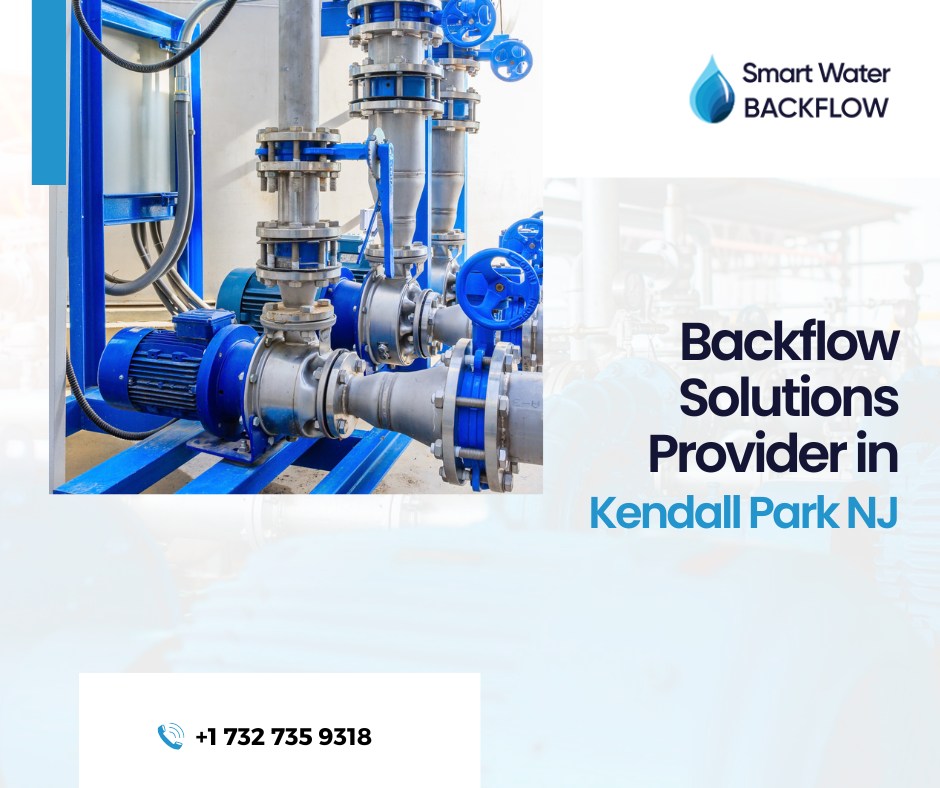Is Backflow Testing Required in New Jersey?

Backflow is a potential risk that can compromise the safety of our drinking water supply. It generally occurs when water flow reverses in a plumbing system, potentially allowing contaminants to enter the drinking water. So, it is essential to prevent contaminated water from flowing back into the clean water system, and to do so; many states have implemented regulations regarding backflow prevention and testing.
In various parts of the United States, including New Jersey (NJ), backflow testing has become essential to ensure public health and safety. Backflow prevention devices such as Reduced Pressure Zone (RPZ) are installed in plumbing systems to mitigate this risk, and regular testing is required to ensure their effectiveness. But before looking for a ‘rpz backflow testing near me’ are you aware whether backflow testing is essential in NJ?
Let’s know about it in this blog today.
To comprehend the significance of backflow testing, it is crucial to understand the concept of backflow itself. Backflow can occur due to a sudden drop in water pressure, which creates a vacuum effect, or when there is a cross-connection between the drinking water supply and a source of contamination. Cross-connections can exist in various scenarios, such as irrigation systems, swimming pools, and industrial processes.
When a backflow event occurs, contaminated water from the non-potable source can flow back into the clean drinking water supply, compromising its safety. This contamination can include chemicals, bacteria, fertilizers, pesticides, and other harmful substances that pose a significant health risk to consumers.
Importance of Backflow Prevention and Testing:
Backflow prevention devices help to safeguard public health by preventing the backflow of contaminated water into the potable water system. It involves checking and verifying the proper functioning of backflow prevention devices, such as Reduced Pressure Zone (RPZ) assemblies, to prevent the contamination of potable water. By testing the backflow prevention assembly, professionals can identify any issues or failures that may compromise the integrity of the water system. Timely detection and repair of faulty devices help maintain the safety and quality of the drinking water supply.
Backflow Testing Requirements in New Jersey:
In New Jersey, the Department of Environmental Protection (DEP) has outlined specific requirements for backflow prevention devices based on the level of hazard posed by a particular property or facility. These requirements are based on the potential contamination sources and the necessary protection degree.
The responsibility for backflow prevention rests with the water purveyor (typically the utility company or municipality) and the property owner. The water purveyor is responsible for conducting a risk assessment to determine the backflow hazard associated with each property. Based on this assessment, the water purveyor will categorize the property into one of three hazard levels: high, moderate, or low.
High-hazard properties, such as industrial facilities or hospitals, pose the most significant risk of backflow contamination and require stringent preventive measures. Moderate-hazard properties, such as restaurants or shopping centers, pose a lower risk, while low-hazard properties, such as residential homes, have the least potential for backflow contamination.
The New Jersey Department of Environmental Protection (NJDEP) recommends that each municipality adopt and enforce a backflow prevention program. Consequently, local authorities may have their ordinances and regulations requiring annual backflow testing for specific properties or businesses. These requirements often apply to commercial, industrial, and multi-family residential properties.
Property owners and managers must check with their local municipality to determine the specific backflow testing requirements applicable to their property. Municipalities may have their certified backflow testers or require property owners to hire licensed professionals to perform the testing.
Consequences of Non-compliance: Non-compliance with local backflow prevention and testing requirements can result in penalties and fines. Additionally, property owners may face legal liabilities if a backflow incident occurs due to negligence or failure to comply with the regulations. Regular testing and compliance help protect public health and prevent legal and financial consequences.
Conclusion
Backflow testing is an essential requirement in NJ to protect the public water supply from contamination and ensure the health and safety of the community. By understanding the risks associated with backflow, the role of backflow prevention devices, and the importance of regular testing, property owners can take the necessary steps to comply with NJ regulations.
If you are one of the property owners and looking for a reliable company for your backflow testing and preventive measures, Smart Water Backflow is here. Our expert team is here to provide you with top-notch backflow testing solutions. With years of experience and a commitment to excellence, we ensure your property’s water supply remains clean and safe. Our skilled technicians are equipped with state-of-the-art equipment to assess and diagnose any backflow issues accurately. We prioritize customer satisfaction and guarantee efficient and reliable testing services. Don’t compromise on the integrity of your water system—hire us for backflow testing that meets industry standards. Protect your water quality with our trusted experts.
Contact us now 732-735-9318 to schedule an appointment!
Leave a Reply